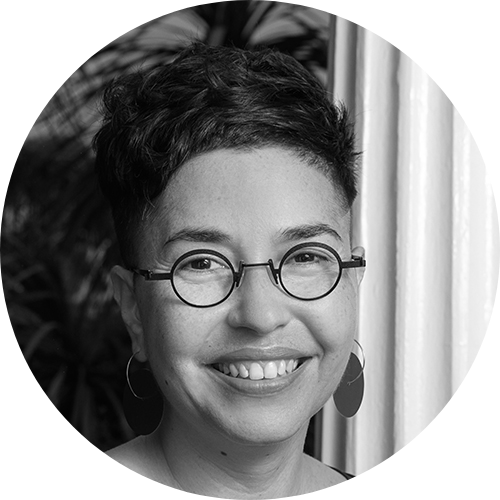
Search VATE
e.g. Tales of Two Cities, VCE literature guide, membership...
2025 VATE State Conference
|
|
|
Keynote speakers
|
|
||
|
‘A Twilight of Knowing’: Education and truth-telling in a post-truth era How do we engage in truth-telling in a ‘post-truth’ society? Amidst rising backlash and denialism, how can educators navigate truth-telling in their classrooms and communities? Drawing from his global and local research, Matthew will explore the relationship of education and truth-telling; discuss teachers' vital role in truth-telling, and related processes of treaty-making, reconciliation and self-determination. Connections between education and truth-telling are frequently invoked, including here in Victoria in recommendations made by the landmark Yoorrook Justice Commission. All eyes are now on how the unfolding Treaty process – the first of its kind nationally – might influence educational reform. Australians of all ages identify school education as one of the most significant barriers to truth-telling and social change, and little is known about how school education can support truth-telling. Truth, in a settler society, remains a fickle thing. As historian Anna Haebich has argued, the Australian public drifts ‘in a twilight of knowing’ about the impacts of colonisation on First Nations people. How might educators engage in truth-telling, combat denialism and post-truth politics, and navigate the ethical challenges posed by truth-telling in the classroom? Dr Matthew R. Keynes is a non-Indigenous historian, and Senior Research Fellow in the Faculty of Education at The University of Melbourne. Matthew is currently leading an international project on truth commissions, exploring how educators in Australia and the Nordic states are engaging with truth-telling. His books include the monograph Education and Historical Justice: Redress, Reparations and Reconciliation in the Classroom (Bloomsbury 2025) and Historical Justice and History Education (Palgrave 2021). |
|
Digital news literacy in the classroom: Supporting informed and engaged young citizens |
||
|
Young Australians aged 13-16 have grown up alongside the rise of social media platforms. Not surprisingly, social media is the main source of news for teens, after friends and family. News engagement has long been established as an important pre-cursor to civic engagement. Young Australians who are interested in news are more likely to leverage technology to improve their school or town, get involved in social issues or help other people. However, the Australian Government has legislated to ban anyone under 16 from using popular social media platforms and it remains unclear what impact this will have on teens’ news and civic engagement. News literacy education can increase young people’s engagement with news while developing their critical, social and technological capabilities. This is important since most teens are not confident that they can identify misinformation online and are unsure how algorithms shape online news engagement. Although teens are interested in learning more about these topics, only one in four say that they are receiving annual news literacy lessons in school to help them decide who and what to trust online. This keynote will examine innovations in news literacy pedagogy and consider what we know about how effective interventions are when it comes to developing and supporting informed and engaged young citizens. Dr Tanya Notley is Associate Professor in the School of Humanities and Communication Arts at Western Sydney University. She is recognised for her 25+ years of experience working with NGOs, government agencies, public cultural institutions, universities and the United Nations in the areas of digital inclusion and media literacy. Tanya has led 10 media literacy research projects since 2017 including collaboration with more than 20 industry partners. She leads two longitudinal national surveys: one on adult media literacy (2024) and one on young people’s news literacy (2023). She also leads a national project that examines the role media literacy can play in addressing misinformation. Tanya is a founding member of the Australian Media Literacy Alliance and served as the co-chair from 2020 to 2023. She serves on the media literacy project advisory panels for several organisations including the National Film and Sound Archive of Australia and the Federation of Ethnic Communities' Councils of Australia. |
|
|
Guest speakers
|
English teachers have superpowers There’s a very telling question I’m fond of asking artists, writers and journalists about the single most critical factor responsible for that impactful career choice. Was it the school they went to? Was it their extra-curriculars? Was it their parents’ influence? No. Nine times out of then, it was their English teacher. That’s right: where they are today is thanks to their English teacher’s unique, creative and ambitious teaching style. That number one pivotal reason is you – every single day, you change lives. Right now, however, the ways students learn both within and beyond the classroom are under threat. Generative AI risks robbing students of creativity, spontaneity, critical thinking and even truth. Government-mandated lesson plans risk robbing teachers of the creativity and spontaneity that bring lessons to life, as well as dynamic approaches to critical thinking that help separate fact from fiction. English discipline professionals educate the thinkers, writers and citizens of the future, empowering them to apply creativity in venturous ways. Drawing on my work railing against the ‘Content Mindset’ and championing creative civic engagement, let’s spend some time galvanising our professional autonomy and focusing our advocacy: for engaging educational experiences that transform lives and enrich the nation. Esther Anatolitis works venturously across the cultural and civic fields that create Australia’s future. As Editor of Meanjin, Hon A/Prof at RMIT School of Art, and a member of the National Gallery of Australia Governing Council, she is a highly respected champion of artists’ voices. Across two decades, Esther has held arts and media leadership positions across all platforms and artforms. She has served many government policy bodies and arts boards, presented guest lectures all over Australia, and is a former board member of the National Advocates for Arts Education. Her strategic consultancy Test Pattern honours the values of art, tenacity and democracy, working across Australia on strategic development, creative precincts and public policy. A prolific writer and broadcaster, Esther’s work is published and translated widely, and she is a sought-after speaker and commentator on arts and civic matters. Photo credit: Sarah Walker |
|
|
|
|
||
|
Enhancing belonging to the profession: Rediscovering joy, connection and purpose in teaching work Australia is facing a teacher shortage crisis. Only 30% of teachers report that they intend to stay in the profession until retirement. The reasons teachers give for wanting to leave include excessive and emotionally intense workloads, wellbeing and safety concerns, and declining respect for the profession. Despite these challenges, many teachers report a strong sense of belonging to the profession. Our research has found that the relational and care work of teaching is central to teachers’ experiences and influences their likelihood of remaining in the profession. In this address, I will explore possibilities for reprioritising joy, connection, and purpose in teachers’ relationships with students and with each other. We will consider how prevailing discourses that focus on narrow measures of performance constrain the ways teachers can access such outcomes in their work - and how these constraints might be challenged to transform schooling experiences for both students and teachers. Dr Fiona Longmuir is a Senior Lecturer in Educational Leadership and co-leader of the Education Workforce for the Future Impact Lab, School of Education, Culture and Society, Faculty of Education at Monash University. Fiona’s research focuses on educators’ working conditions, principals’ emotional labour, and the role of school and system leadership in supporting student engagement and agency. She has expertise in crisis leadership, social cohesion, and social justice in education. She has published on topics including, teachers’ working conditions and retention, leadership in complex contexts, and student agency in school reform. Fiona teaches in the Master of Educational Leadership, specialising in social justice, policy enactment, and educational change. She led the Graduate Certificate of Principal Preparation from 2019 to 2021 and contributes to leadership programs for international school and system leaders. Previously, Fiona spent over a decade as Director of Research in Innovative Professional Practice at Educational Transformations, leading national and international studies on school leadership and system effectiveness. She also worked 15 years with the Victorian Department of Education and Training as a teacher, and curriculum, school and network leader. Fiona is a Victorian Fellow of the Australian Council for Educational Leaders. |
|
|
||
|
|
|
Panels
|
|
|
|
|






